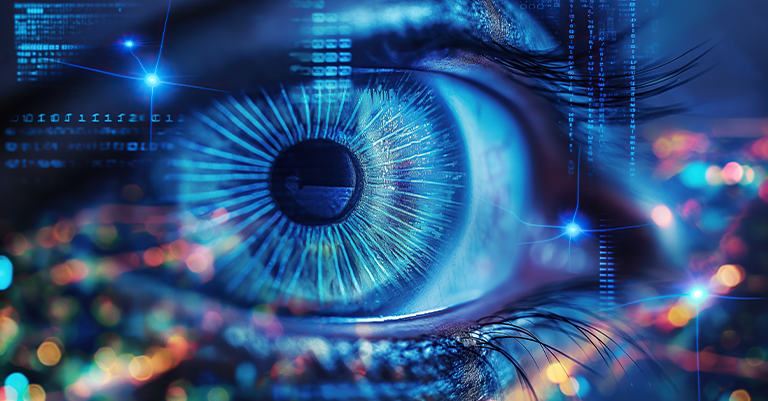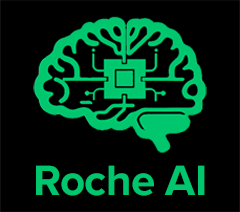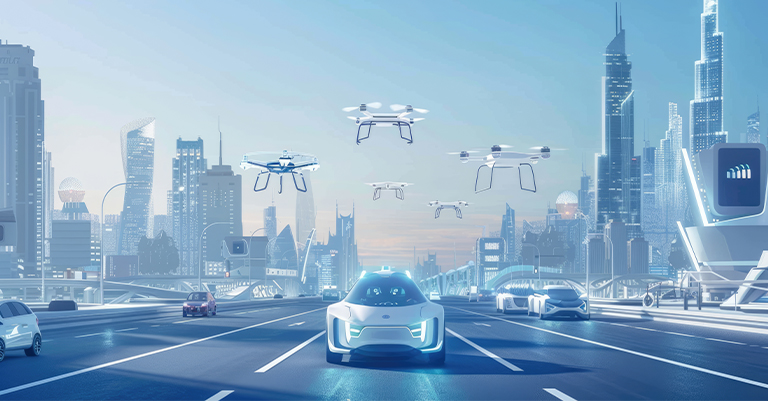Ethical AI Surveillance: Balancing Technology and Privacy
Artificial intelligence is reshaping how we monitor society, bringing both exciting opportunities and serious ethical concerns. AI surveillance systems have the potential to enhance public safety, streamline processes, and even improve the quality of life in many communities. However, the rapid rise of this technology also comes with a need to address privacy issues and the ethical boundaries of surveillance.
The ability to monitor large groups, track movements, and collect data in real-time offers tremendous benefits, especially in high-traffic areas like airports, city centers, and public events. At the same time, without proper ethical guidelines in place, there is a risk of overstepping and infringing on individual freedoms. Society must find a way to balance the use of AI technology with the protection of personal privacy.
In this post, we’ll explore how to use AI surveillance in an ethical way, focusing on key considerations like data privacy, accountability, and transparency. By establishing strong ethical principles, we can ensure that we apply AI surveillance responsibly and help keep society safe while respecting people’s rights. This balance is crucial to maintaining trust between the public and those using AI to monitor spaces.
Why Society Needs AI Surveillance

AI surveillance is becoming more common as society seeks to improve safety and efficiency. It’s important to understand the benefits and risks that come with using this technology. Surveillance powered by AI can help authorities respond faster to emergencies, prevent crimes, and even track public health trends.
When implemented thoughtfully, AI can monitor public spaces, traffic, and other areas to boost safety without intruding on personal freedoms. This technology helps society detect risks before they escalate into major problems. But with these advancements, ethical questions arise. How do we ensure AI is used fairly? How do we avoid abuses?
For AI surveillance to work in a way that benefits society, we must consider the implications of its use. This starts by identifying situations where AI monitoring is necessary and balancing its use with privacy protections.
Enhancing Public Safety
One of the major advantages of AI surveillance is its ability to enhance public safety. AI systems can scan large crowds, detect threats, and alert authorities within seconds. This speed and accuracy help reduce the risk of incidents, whether in airports, shopping malls, or public gatherings.
AI can also improve emergency responses. For example, AI-powered cameras can track movements in disaster zones and help first responders find people who need help. With these benefits, it’s easy to see why AI surveillance can make public spaces safer.
However, the focus must remain on ethical practices. It’s important to avoid over-surveillance or misuse of technology for purposes beyond safety.
Monitoring Without Intrusion
While AI surveillance offers security advantages, there’s a risk of it intruding on personal freedoms. Ethical AI monitoring means collecting the right data without crossing into personal privacy. It’s important to set clear guidelines on what data AI systems can collect, ensuring that private areas and sensitive information remain protected.
Monitoring should prioritize public safety while being transparent about how and why data is collected. By respecting privacy, we can use AI ethically without infringing on people’s rights. Implementing laws that protect privacy helps maintain trust between the public and those using AI technology.
Privacy Concerns in AI Surveillance

With AI surveillance, privacy is always a concern. AI systems can capture and process large amounts of data, including personal details. This creates the risk of misuse, especially if data falls into the wrong hands or is used without consent.
Governments and organizations must ensure that AI systems follow strict privacy rules. AI should only collect personal data when absolutely necessary. Furthermore, AI should never use personal data for surveillance beyond its intended purpose. When applied correctly, this prevents AI from exposing or analyzing personal data without direct consent from the individual to whom the data belongs.
Protecting Personal Data
Protecting personal data is crucial when using AI surveillance. Encryption and secure data storage help keep sensitive information safe. AI systems should have strong security measures to prevent breaches or unauthorized access.
Transparency is key. Clearly informing people about the data collected and how it’s used builds trust. Organizations must handle any data gathered through surveillance responsibly and protect it from falling into the wrong hands.
Transparent Use of AI Technology
Transparency in AI surveillance is critical to maintaining public trust. Governments and businesses using AI for surveillance must be open about how their systems work. Public knowledge of what’s being monitored, why, and how ensures that AI is used responsibly.
Clear policies must outline how organizations use data and when monitoring is appropriate. Transparency about AI technology ensures its ethical application and protects people’s rights.
Best Practices for Ethical AI Monitoring

To ethically monitor society, we need clear guidelines and best practices. Ethical AI surveillance involves balancing public safety with privacy protection. Best practices include transparency, accountability, and creating laws that protect the public from misuse of surveillance data.
Governments, businesses, and organizations must work together to establish a framework that outlines how AI surveillance is used responsibly. With strong ethical guidelines, AI can enhance safety while respecting individual freedoms.
Building Accountability in AI Systems
Accountability is key in ethical AI surveillance. Systems should be designed to record and log every action taken. This creates a trail that can be reviewed if needed, ensuring that no one abuses AI technology.
Accountability helps prevent misuse by allowing for external audits and reviews. By keeping AI systems in check, organizations can show their commitment to ethical monitoring.
Creating Fair Surveillance Policies
Creating fair and transparent surveillance policies is essential for ethical AI use. Policies should clearly define how and when AI systems are used. They should also ensure that surveillance doesn’t target specific groups or individuals unfairly.
Fair policies help reduce bias and ensure that AI technology is applied equally across different settings. They also provide guidelines for using surveillance data without violating personal freedoms.
Moving Forward with AI Surveillance

As AI surveillance becomes more common, it’s important to ensure that its use evolves ethically. With the right systems in place, AI can monitor society without violating privacy. Future developments will likely expand the ways AI helps protect people.
Balancing AI’s potential with ethical practices is the key to moving forward. By focusing on responsible use, AI can improve public safety while still respecting personal freedoms.
AI Surveillance in Future Cities
In future smart cities, AI surveillance will play a big role in keeping people safe. AI-powered systems could manage everything from traffic flow to emergency responses, creating safer environments. However, privacy concerns will remain a top priority.
With future developments, smart cities will need to ensure that AI surveillance doesn’t overstep its bounds. Designing systems that work for both safety and privacy will be crucial.
Creating a Balance Between Security and Privacy
The future of AI surveillance lies in finding a balance between security and privacy. It’s possible to enhance public safety without compromising individual freedoms. Achieving this balance requires clear laws, ethical AI development, and open communication with the public.
By continuing to focus on both safety and rights, AI surveillance can move forward ethically, benefiting society while protecting personal privacy.
Final Thoughts: Striking the Perfect Balance Between Safety and Privacy

As AI surveillance continues to evolve, the key challenge remains striking the perfect balance between enhancing safety and protecting privacy. AI has the potential to revolutionize how we secure public spaces, prevent crime, and respond to emergencies. However, the ethical concerns surrounding its use cannot be ignored.
To fully harness the power of AI surveillance, it’s crucial that we put privacy safeguards in place. Governments and organizations must commit to transparency by clearly communicating how data is collected, used, and stored. In addition, strict laws and guidelines should be enforced to ensure that AI systems are not used to overstep boundaries or target individuals unfairly.
Accountability is also essential. Ethical AI surveillance must include regular checks and audits to prevent misuse. Systems should be designed with fail-safes and logs to track decisions and actions, allowing for external reviews if needed. By fostering an environment of trust and transparency, we can move forward with AI in a way that respects individual rights while maximizing its potential for public safety.
Ultimately, ethical AI surveillance isn’t just about technology; it’s about creating a safer society where privacy and security coexist. By embracing responsible practices, we can shape a future where AI enhances our lives without compromising the freedoms we hold dear.
FAQs
What is AI surveillance, and how does it work?
AI surveillance uses artificial intelligence to monitor and analyze real-time data from cameras, sensors, and other sources. AI algorithms process this data to detect patterns, identify potential threats, and assist in public safety efforts.
How can AI surveillance be used ethically?
Ethical AI surveillance involves transparent use, strict data privacy protections, and accountability. By establishing clear guidelines for data collection and usage, AI can be used responsibly to enhance security without infringing on personal privacy.
What are the biggest concerns with AI surveillance?
The main concerns include privacy invasion, misuse of collected data, and potential biases in AI algorithms that could lead to unfair targeting of individuals or groups. These issues highlight the need for strong ethical guidelines and regulations.
How does AI surveillance impact privacy?
AI surveillance captures large amounts of personal data, which raises concerns about storing and using this information. Without proper protections, organizations risk violating privacy. Collecting data only for necessary purposes and safeguarding it is crucial for maintaining privacy.
Can AI surveillance be trusted to avoid misuse?
Trust in AI surveillance depends on transparency, strong legal frameworks, and ongoing accountability. Regular audits, clear communication about how the technology is used, and safeguards against misuse are essential to building trust with the public.





